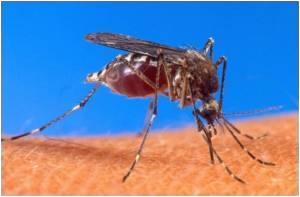The usual doses of chemotherapy drugs can cause serious toxic effects in quickly dividing tissues such as the bone marrow.

Hans-Peter Kiem and colleagues presented data from a clinical trial in which bone marrow stem cells from patients with brain tumors were removed and modified with a retrovirus vector to introduce the chemotherapy-resistant gene. The cells were then re-infused into the patients.
In the trial, which was designed to evaluate safety and feasibility, patients were safely administered gene-modified blood stem cells that persisted for more than one year and did not show any apparent harmful effects.
"Our initial results are encouraging because our first patient is still alive and without evidence of disease progression almost two years after diagnosis," Kiem said.
The results of the trial suggest the administration of the modified cells represent a safe method for protecting marrow and blood cells from the harmful effects of chemotherapy in brain tumor patients.
The research was reported at the annual meeting of the American Society of Gene and Cell Therapy in Seattle.
Advertisement












